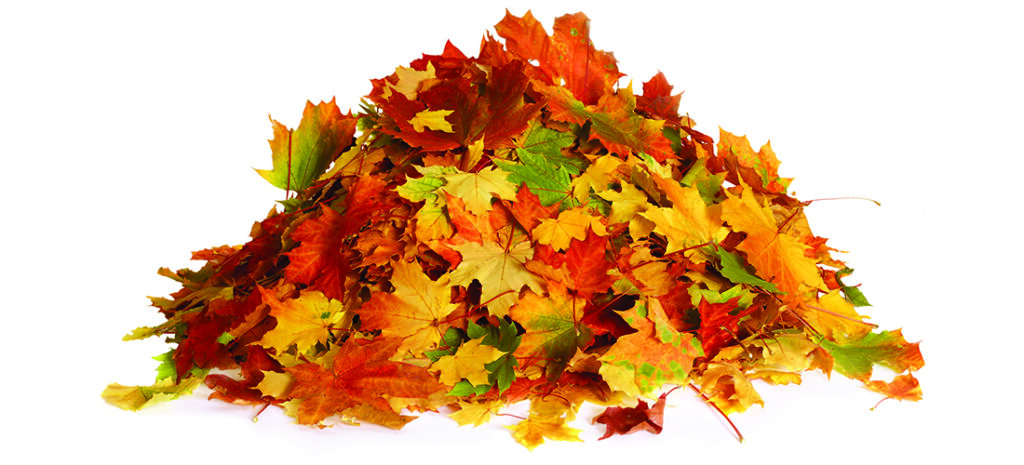Botanicus

The Subtle Art of Leaf-Pinching
It can get a little embarrassing
By Ross Howell Jr.
The City of Greensboro’s recent policy change discontinuing the curbside pickup of leaves piled or in plastic bags has prompted quite a wide range of responses from homeowners — as new civic policies often do.
In my case, I’m concerned about a potential interruption of my supply chain.
So I did what any Greensboro resident would do. I consulted an economics professor.
My neighbor, Bob Wilson, has taught at Guilford College for decades. His wife, Mary Beth Boone, is a print artist. They’re both avid gardeners. In fact, Bob brought a house gift of blueberries from his garden when my wife, Mary Leigh, and I moved into the neighborhood years ago.
Situated on a corner lot in Fisher Park, Bob and Mary Beth’s house is surrounded by a lovely cottage garden. Filled with perennials, it’s colorful throughout the growing season, from creeping phlox in the early spring to the purple foliage of oakleaf hydrangeas in the fall.
Bob, Mary Beth and I share a little secret.
We pinch leaves from neighbors’ curbsides in the fall.
“Bob likes to call me the bag lady,” Mary Beth laughs. When she sees those clear plastic bags on the curb, stuffed with oh-so-tempting leaves, she’ll stop her vehicle on the spot and sling the bags into the trunk.
Mary Beth tells me about a recent encounter. She was stuffing bags into her car when a young woman happened along. She stopped and removed her ear buds.
“Excuse me,” the young woman said. “What are you doing?”
Mary Beth explained that she was loading up leaves to take to her house to spread on her plant beds.
“Oh, like composting,” the young woman said.
“Exactly,” Mary Beth replied.
“Cool,” the young woman said. She replaced her ear buds and nonchalantly went on her way.
Bob, Mary Beth and I share a smile.
I ask Mary Beth about her favorite leaves for mulching. She prefers white oak and maple.
My own preference is the slender, slippery willow oak leaves, though raking them can be like trying to rake water.
I just roll my trashcan down the sidewalk to somebody’s curb and start raking. I’m not as subtle as Mary Beth.
I expect some of my neighbors find this behavior eccentric, but excuse it because I’m a writer, and we’re supposed to be eccentric.
For some of us, leaves are the best type of organic mulch you can find.
“Problem is, most people don’t like the way they look.” says Bob. For homeowners with grass lawns, piled leaves can be unsightly. But I’ve found that if you mow over them weekly during leaf drop, they disappear like magic.
Of course, scattered over perennial beds, the leaves hide quickly on their own.
“Leaves are a great mulch for stopping weeds from coming up,” Bob continues. “And they’re the perfect fertilizer.”
He explains that as trees take nutrients out of the soil to grow, they transfer most of those nutrients into leaf production. When leaves fall, the nutrients are returned to the soil.
“So rather than trying to figure out if I’m buying the right fertilizer,” Bob adds, “I know I’m getting the perfect fertilizer.”
“It’s always made sense to me,” he concludes.
Just as the young woman with the ear buds commented to Mary Beth, it’s like composting.
Bob’s even written a book strongly influenced by his experience with gardening over the years. Developed from a course he taught, Greening the Economy describes essential characteristics of healthy natural ecosystems that can be applied to building and sustaining healthy economic systems worldwide. The text has even been translated into Mandarin.
All well and good, but Bob’s book doesn’t solve our dilemma. The curbside leaves that he, Mary Beth and I have pilfered for years apparently won’t be so conveniently available in the future.
And those clear plastic bags that made it so easy to identify the leaves will be relics of the past. OH
Ross Howell Jr. is a contributor to O.Henry magazine. Not all leaves are suitable for mulch. For helpful tips, visit www.simplegardenlife.com/leaves-to-avoid-composting.
